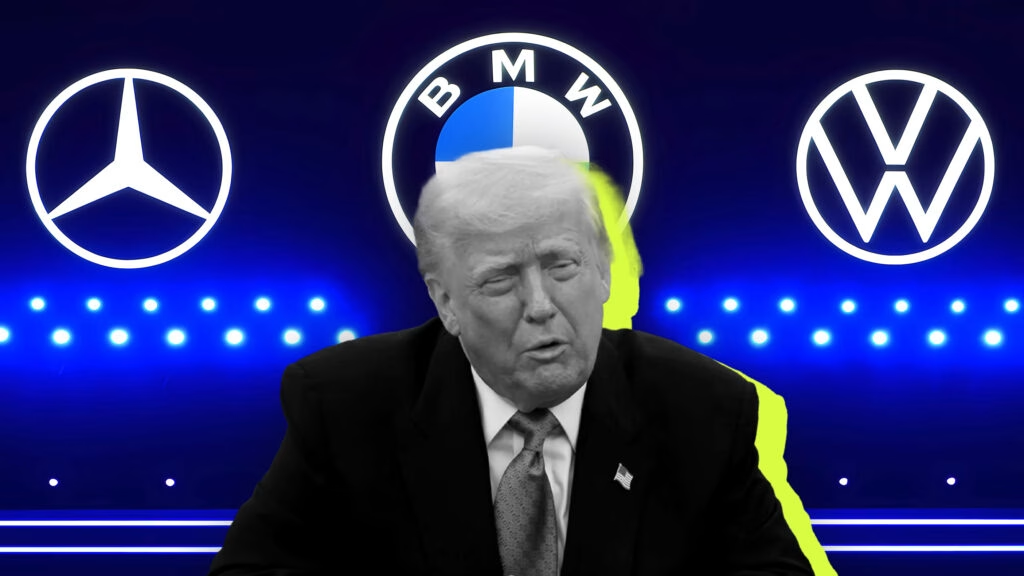BMW, Mercedes, and Volkswagen are currently engaged in serious discussions with the U.S. government regarding a potential trade deal that could reshape the automotive landscape. The stakes are high, especially for BMW, which is reportedly losing an eye-watering $11.3 million daily due to tariffs imposed on its vehicles. This situation highlights the broader implications of trade wars, particularly in the automotive sector, where the costs can escalate quickly and impact not just the companies involved but also the economies they operate within.
### What’s Driving the Talks?
The ongoing tariff standoff has prompted these German automakers to seek relief through negotiations with U.S. Secretary of Commerce Howard Lutnick. The discussions are centered around an “export offsetting model,” which aims to balance the scales between imports of German-made vehicles and exports of American-built German cars. This approach could resonate with U.S. trade policies focused on reducing trade deficits, a key concern for the current administration.
The proposed deal might involve tariff discounts linked to the exports of vehicles manufactured in the U.S. by these companies. According to reports, if successful, this arrangement could be finalized as soon as next month, although it may hinge on significant investments from the automakers in U.S. operations.
### The Economic Impact of Tariffs
The financial toll of these tariffs is staggering. BMW’s daily losses alone underscore the urgent need for a resolution. But they’re not alone in this struggle; Mercedes and Volkswagen are also feeling the pinch, despite their substantial manufacturing presence in the U.S. For instance, BMW operates a massive facility in Spartanburg, South Carolina, which employs around 11,000 people and has produced over 7 million vehicles since its inception. In 2022, the plant alone built nearly 400,000 vehicles, with a significant portion exported globally.
Mercedes’ plant in Tuscaloosa, Alabama, has similarly made a mark, producing around 260,000 vehicles last year, while Volkswagen’s Chattanooga facility has been pivotal in the production of models like the Atlas and ID.4. These plants not only contribute to the companies’ bottom lines but also play a crucial role in local economies, providing jobs and boosting regional growth.
### What’s Next for the Automakers?
As these discussions unfold, the automakers are hopeful for a swift resolution. The proposed “export credits” would allow them to offset some of the tariffs they face, potentially easing the financial burden. However, the path forward is not without challenges. The need for substantial investment in U.S. operations may complicate negotiations, as companies weigh the costs against potential benefits.
Moreover, the political landscape adds another layer of complexity. High-profile Republicans from regions with significant automotive manufacturing, like South Carolina and Alabama, are backing these negotiations, knowing how vital these plants are to their constituents. The outcome of these talks could have far-reaching implications, not just for the automakers but also for American workers and the economy at large.
### The Bigger Picture
Trade agreements in the automotive sector are often a double-edged sword. While they can provide relief from tariffs and foster economic growth, they also require careful navigation of political and economic landscapes. The ongoing discussions between BMW, Mercedes, Volkswagen, and the U.S. government illustrate the delicate balance that must be struck to ensure mutual benefit.
As we watch these negotiations unfold, one thing is clear: the automotive industry is at a crossroads. The decisions made in the coming weeks could redefine trade relationships and impact the future of manufacturing in both the U.S. and Germany.
The big takeaway? Trade negotiations aren’t just about numbers—they’re about people, jobs, and the future of industries that shape our economies. Keep an eye on these developments; they could lead to significant changes in how we think about global trade and manufacturing.

